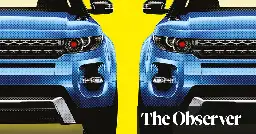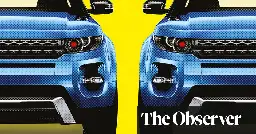Monsters of the road: what should the UK do about SUVs?
Monsters of the road: what should the UK do about SUVs?

www.theguardian.com
Monsters of the road: what should the UK do about SUVs?

It’s midnight on the edge of Clapham Common in early September. The streets are eerily quiet as a shadowy figure in black shirt, shorts and baseball cap emerges from the common. He is wearing a red face mask, his features, except for some blond locks, hidden from view.

